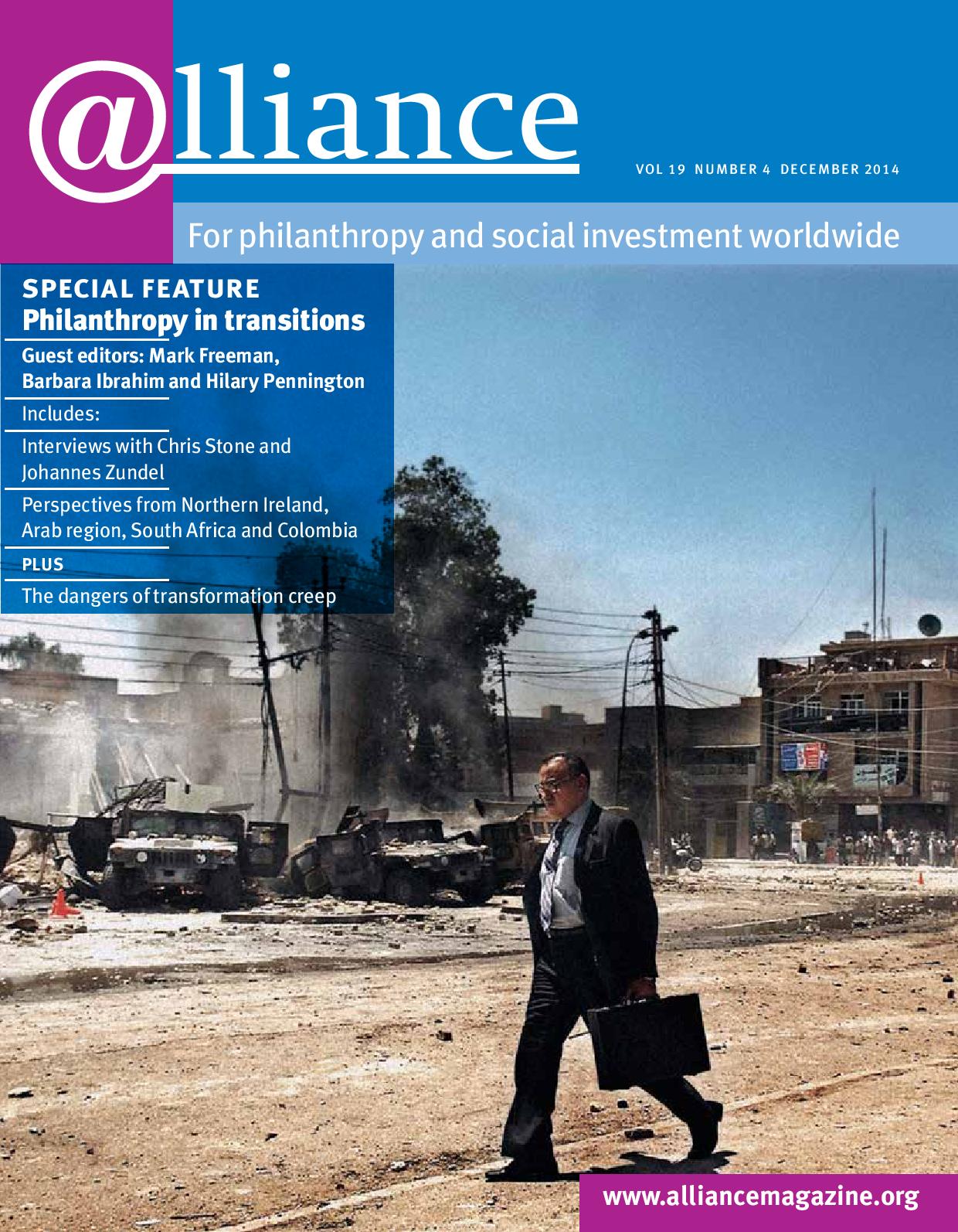By their nature, national transitions are unpredictable and fast-moving. What is the case for donors taking risks and engaging in these historical moments?
Across Africa, there are three broad categories of country: conflict-ridden countries, post-conflict countries and stable countries. Of these, it is often the post-conflict countries that present the best balance of needs and opportunities for donors.
First, transitional situations, such as post-genocide Rwanda, post-apartheid South Africa, post-civil war Liberia and Sierra Leone, and newly independent South Sudan, present rare opportunities for achieving game-changing developmental impact. The priorities are never in doubt, and the drivers and levers of change are often self-evident. As the saying goes, ‘When it’s dark enough, you can see the stars.’
Second, because the challenges are daunting and beyond the capacity of any single donor to respond to alone, donor collaboration becomes an easier sell, with the possible advantages of peer learning and heightened impact. Third, the unpredictability and fast-moving nature of national transitions may foster the innovation and creativity that so often eludes us.
What are some of the key lessons from successful transitions that could inform the way private donors shape their support to other transitions?
Countries such as South Africa and Liberia show us that success comes from working on all fronts and levels simultaneously: the ground level of citizen engagement and advocacy within country; the policy level of social justice institutional strengthening and reconciliation; and the international level of mobilized alliances for effective and credible transition.
Another key lesson is the importance of paying attention to ‘anti-impunity’. In Liberia, Rwanda and South Africa, the perpetrators of crimes against humanity were not completely ignored, even as reconciliation was vigorously pursued. Finally, we’ve learned that successful transitions are always a work in progress. Twenty years after the end of apartheid, South Africa still has unfinished transitional business. As Florynce Kennedy, the American civil rights activist, once aptly put it, ‘Freedom is like taking a bath; you have to keep taking it every day.’
Are there general lessons to be learned from stalled or failed transitions?
Over the last 50 years, the overriding imperative in national transitions in virtually every African country has been to build a unified nation with a credible state out of disparate ethnicities. The single most important lesson from the stalled transitions in countries such as Zimbabwe, Sudan, South Sudan, Democratic Republic of Congo and Central African Republic is that the best philanthropic investments are in supporting civil society organizations to demand accountable, transparent and responsible governance.
We see a troubling rise in attempts by states to control the use of international private aid. Can the philanthropic community make a better case for international support to strengthen citizen engagement? Is this an area where TrustAfrica is venturing?
The philanthropic community can do a lot to address this challenge, starting with collaborative outreach to African regional organizations such as the African Union and subregional organizations like the Economic Community of West African States (ECOWAS), which provide space for dialogue and for standard setting on governance issues.
TrustAfrica is addressing this through knowledge building and dissemination, and strengthening civil society networks for concerted advocacy across borders. A first step was publication of a study called (Dis)Enabling the Public Sphere: Civil society regulation in Africa.
What can donors engaging in North African countries learn from the way democratic transitions in Africa reflect specific cultural and historical realities?
Successful democratic transitions are all about context and texture. The cultural factors that have tended to stall successful transitions in Africa are patriarchy and gerontocracy. The extreme dominance of politics by men and the old is a deeply entrenched cultural reality across the continent. It is no accident that virtually all the stalled or failed transitions are in countries led by very old men (half of the oldest heads of state in the world are African!). The transitions under way in Algeria, Egypt, Libya, Morocco, Sudan and Mauritania could all greatly benefit from donor support focused on enhancing the civic engagement of women and youth in building a just and secure future for all.
Akwasi Aidoo is a Humanity United senior fellow. He was the founding executive director of TrustAfrica from 2006 to 2014. Email aaidoo@humanityunited.org
Lead image caption: 3rd Pan African Youth Leadership Summit held in Burkina Faso, West Africa in December 2012.







Comments (0)